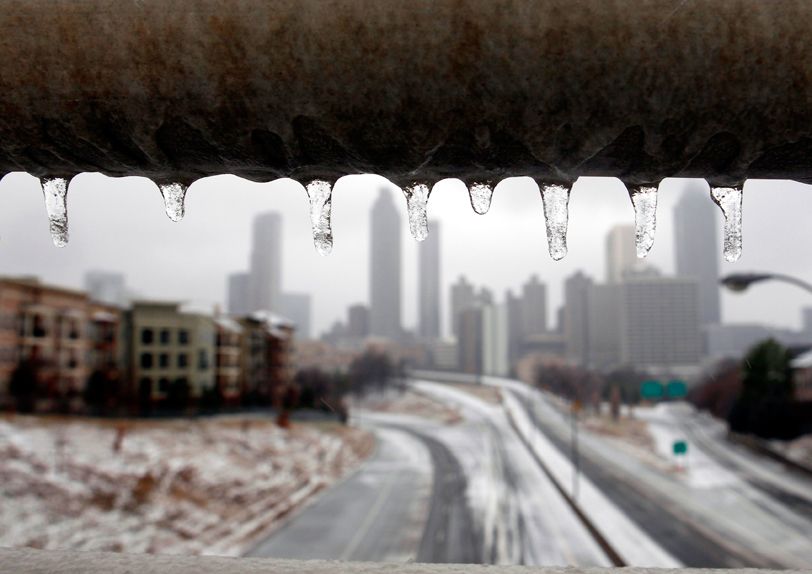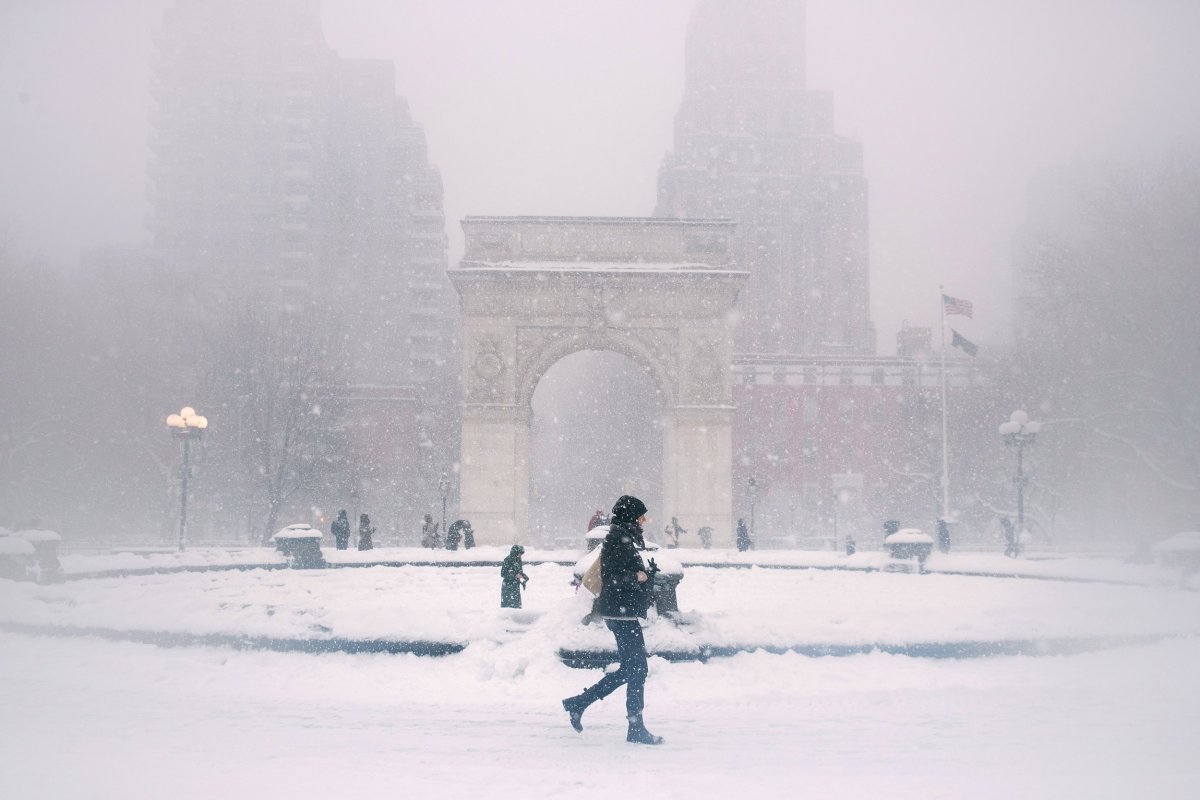
A greater swath of the U.S. eastern area had been under extreme cold weather for the past two weeks—and the worst is yet to come.
Winter Storm Grayson is expected to bring frigid temperatures, snow and sleet to the southeastern coast, while the easternmost part of New Hampshire will experience a ravaging storm that resembles "a winter hurricane." Parts as far south as northern Florida, coastal Georgia and the eastern Carolinas have issued winter storm warnings.
Experts also call the storm a "bomb cyclone" because its pressure will drop as low as hurricane winds. But what is a winter hurricane? Here's what you need to know.
What is a winter hurricane?
A winter hurricane or a "bomb cyclone" is considered an extra-tropical cyclone by some experts because it is a low-pressure system associated with cold, warm and occluded fronts, according to the Hurricane Research Division. The enormous storm is also known as "bombogenesis," a powerful drop in "atmospheric pressure of 24 millibars or more in a period of 24 hours," according to The Weather Channel.
How is it different from tropical cyclones?

Tropical cyclones have little to no temperature differences across the natural phenomenon and their winds come from the release of energy thanks to cloud and rain formation from warm air coming out of the tropics. Tropical cyclones develop the strongest wind gusts near the earth's surface.
Extra-tropical cyclones, on the other hand, reach the strongest wind intensity near the tropopause, meaning 8 miles up. A tropical cyclone can turn into an extra-tropical one "as it recurves poleward and to the east," while an extra-tropical storm can become a fully developed tropical cyclone by losing "its frontal features [and] develop convection near the center of the storm," the division said. This transformation normally occurs in the North Atlantic and Northwest Pacific basins.
Like hurricanes, winter storms also receive names—this time from The Weather Channel. Last October, the network and its website released a list of winter storm names for the sixth time in a row since the 2012–2013 roster. Based on the Weather Channel's list, Grayson will be the seventh winter storm of this season.
How bad is it?
Experts such as Greg Postel predict that the storm could be among the most intense over the east of New England in years at this time of the season. Blizzard conditions will hammer coastal areas, but the worst conditions will be out over the ocean, The Washington Post says. The storm will begin to take shape off the coast of Florida tomorrow and it is expected to intensify in the mid-Atlantic area and eastern New England.
There are more than a few simulations that drop pressures under 950hPa. I can't think of any extratropical cyclone in recent times at that magnitude off the East Coast .... ? Of course it may not get there, but still 😮 #nywx #njwx #ncwx #scwx #flwx #gawx #ctwx #mawx #mewx pic.twitter.com/WXi1YGQXmz
— Greg Postel (@GregPostel) January 2, 2018
"Some computer models are projecting a minimum central air pressure of below 950 millibars at its peak, which would be nearly unheard of for this part of the world outside of a hurricane," Mashable reported. "For comparison, Hurricane Sandy had a minimum central pressure of about 946 millibars when it made its left hook into New Jersey in 2012."
Temperatures are expected to be 20 to 40 degrees below normal, the Post reported. For more information about how much snow certain areas will get, click here.
Uncommon Knowledge
Newsweek is committed to challenging conventional wisdom and finding connections in the search for common ground.
Newsweek is committed to challenging conventional wisdom and finding connections in the search for common ground.
About the writer
Robert Valencia is deputy world editor for Newsweek. Robert has covered issues related to drug policy, human rights, U.S. presidential ... Read more
To read how Newsweek uses AI as a newsroom tool, Click here.








